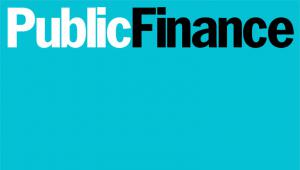
I truly believe this is a golden time for procurement in the public sector. The trilemma of potential trade wars, a slowing global economy and continuing uncertainty around what Brexit will mean in practice offers opportunities for procurement and supply chain professionals to demonstrate their true worth, and strengthen their supply chains to mitigate risks.
Why the confidence? Because qualified, trained supply chain managers know all about risk, and what’s important to keep supply chains moving. The daily diet of managing changes in the regulatory landscape, navigating the impacts of sociopolitical change and switching to new supply chain models is what they excel at. Along with the use of accurate data to make good decisions, comparing the performance of suppliers and understanding how goods, services and infrastructure all benefit from best-practice procurement.
The pressures on procurement teams in the public sector often seem insurmountable. The procedures to procure services are long and complex, while supply chain managers have to deliver ever-greater efficiencies. Professionals in the public sector must show clearly that they follow responsible procurement practices and deliver good value; not least because spend in the public sector is huge and vitally important to our citizens.
According to the Institute for Government, a third of total public expenditure – around £284bn each year – is spent on procurement. The chancellor’s promise of the largest rise for 15 years of 4.1% in public spending will mean procurement teams across central and local government have greater funds – and responsibility to achieve greater outcomes. Good procurement is not created by big budgets alone, but must be conducted wisely, with contracts professionally managed to meet multiple demands. A focus on driving cost savings is ‘business as usual’ for procurement, but it’s not the only tool available when delivering value.
Value across the supply chain is created in many ways, whether enabling and supporting suppliers to give their innovative best or ensuring specifications are clear, concise, compliant, current and linked to policy objectives. Ethical procurement is fast becoming a non-negotiable for many teams. We have been working with the UK government on the drive for more ethical practice in all aspects of commercial activity to root out the evil of modern slavery. There has been good progress, increasing awareness, with the potential to even save lives.
Another value ‘tool’ for professionals is to manage contracts effectively throughout their life, avoiding nasty surprises further down the supply chain. It was never a winning strategy for buyers to beat down suppliers, forget about them and expect great value in the long run. Somewhere along the supply chain the true impact of a bad deal will always emerge, and trained, skilled professionals know this.
So when under pressure to just cut costs, supply chain managers should push back and ask that vital question – what really matters to the public purse? I believe there is a strong drive in UK government procurement to improve capability and focus on value. Only then can decisions be made about whether savings are the best and only way to drive efficiencies in a department, or whether the real focus should be value across the supply chain and good risk mitigation?
I urge professionals to monitor changes in supply chains, meet challenges head-on, and remain in control rather than letting sociopolitical and economic events take control of the procurement process. That’s what procurement and supply chain professionals are accountable and responsible for.




















